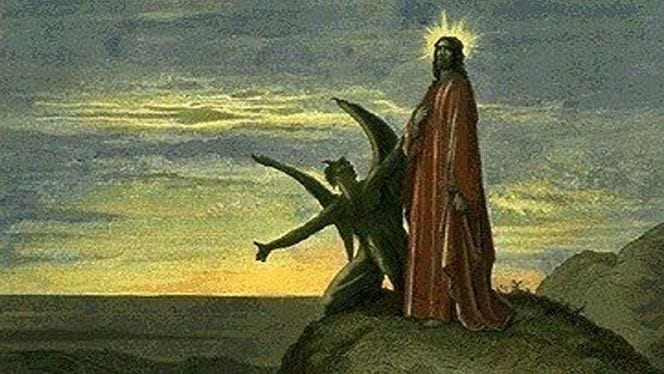On The Temptations of Christ
Pt. 1 The Three Temptations and Their Old Testament Parallels
I. INTRO
"But in the end, it's only a passing thing, this shadow; even darkness must pass." J.R.R. Tolkien
When speaking on exegesis, Benedict XVI says, "the fact is that scholarly exegesis can be a tool of the antichrist."1 I had to take a pause from this quote as it appears sadly plausible and very appropriate considering the topic at hand. Satan knows the scriptures as well as anyone, and it is in the three temptations that we come to see Satan play the role of a master theologian.
A common practice today is to measure the Bible against the so-called modern worldview, whose fundamental dogma is that God cannot act in history.2 Modern critical methods of studying the scriptures concluded in the 20th century that most of what is recounted in the Gospels did not happen by man's light.3 It is curious how we continue in these times of skepticism and scientific reductionism that the reflection of the desert story seems very apropos. A great humility must be applied to hermeneutic study with prayer and watchfulness being the chief weapons against temptation (Mark 14:38). Returning to John Paul II's writing in Fides et Ratio, great emphasis is placed on applying the proper amount of faith and reason into our scholastic and spiritual pursuits. Christians can still trust the Gospels even if modernity loses sight of God.



